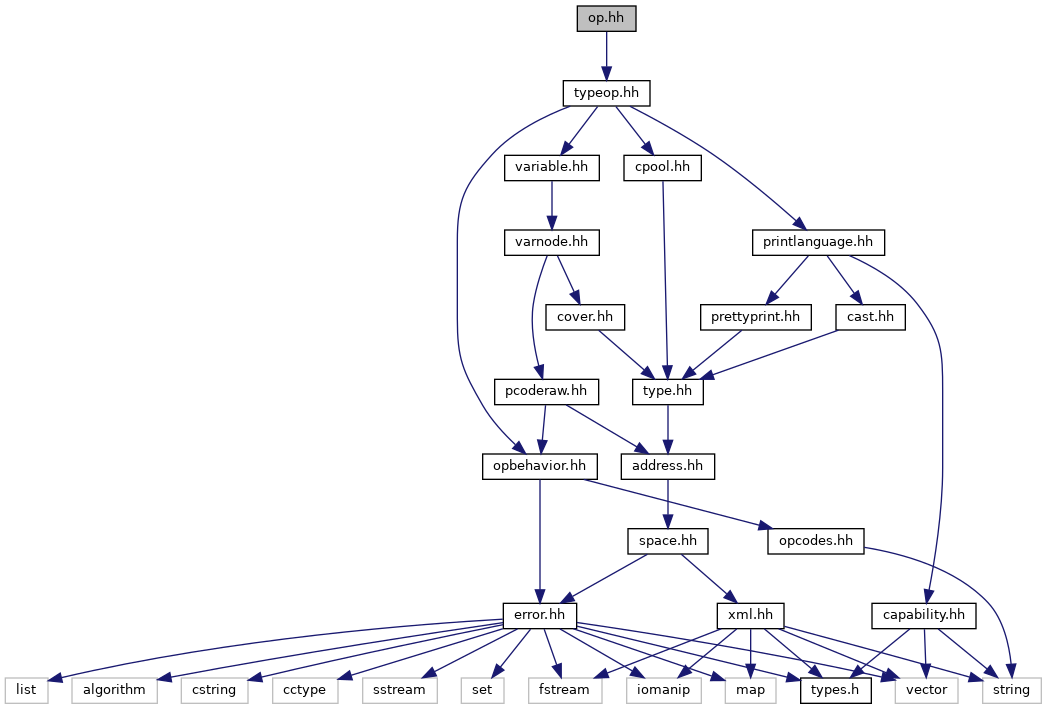The PcodeOp and PcodeOpBank classes. More...
#include "typeop.hh"
Include dependency graph for op.hh:

This graph shows which files directly or indirectly include this file:

Go to the source code of this file.
Classes | |
| class | IopSpace |
| Space for storing internal PcodeOp pointers as addresses. More... | |
| class | PcodeOp |
| Lowest level operation of the p-code language. More... | |
| struct | PcodeOpNode |
| An edge in a data-flow path or graph. More... | |
| class | PcodeOpBank |
| Container class for PcodeOps associated with a single function. More... | |
Typedefs | |
| typedef map< SeqNum, PcodeOp * > | PcodeOpTree |
| A map from sequence number (SeqNum) to PcodeOp. | |
Functions | |
| int4 | functionalEqualityLevel (Varnode *vn1, Varnode *vn2, Varnode **res1, Varnode **res2) |
| Try to determine if vn1 and vn2 contain the same value. More... | |
| bool | functionalEquality (Varnode *vn1, Varnode *vn2) |
| Determine if two Varnodes hold the same value. More... | |
| bool | functionalDifference (Varnode *vn1, Varnode *vn2, int4 depth) |
| Return true if vn1 and vn2 are verifiably different values. More... | |
Detailed Description
The PcodeOp and PcodeOpBank classes.
Function Documentation
◆ functionalDifference()
◆ functionalEquality()
◆ functionalEqualityLevel()
Try to determine if vn1 and vn2 contain the same value.
Return:
- -1, if they do not, or if it can't be immediately verified
- 0, if they do hold the same value
- >0, if the result is contingent on additional varnode pairs having the same value In the last case, the varnode pairs are returned as (res1[i],res2[i]), where the return value is the number of pairs.
- Parameters
-
vn1 is the first Varnode to compare vn2 is the second Varnode res1 is a reference to the first returned Varnode res2 is a reference to the second returned Varnode
- Returns
- the result of the comparison
 1.8.17
1.8.17